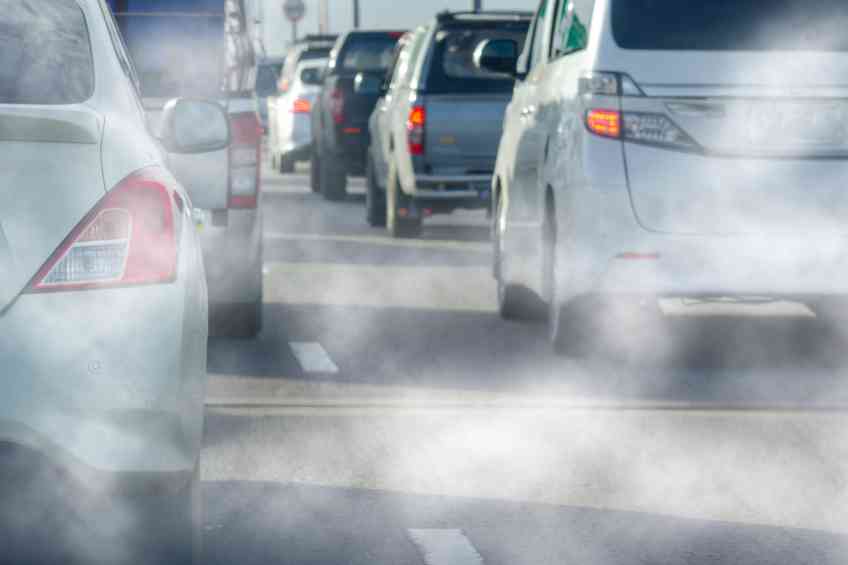By John Salak –
People like to avoid car traffic for all sorts of reasons. It’s generally pretty noisy, it plays havoc with travel plans, and it can stink. Most realize it is also not particularly healthy to sit in a car surrounded by other cars.
Researchers in Canada and California just underscored the threat that traffic pollution presents. According to two Canadian universities, it can impair brain function in a matter of hours. Their academic colleagues in California warn that exposure to traffic-related air pollutants causes cellular changes in the placenta that can lead to pregnancy complications and affect the health of both mother and offspring.
These newly reported risks are frightening because the Environmental Protection Agency reports that fossil fuels like gasoline and diesel account for 27 percent of all U.S. greenhouse gas emissions, making them the largest contributor to these dangerous discharges.
In what is reputed to be the first evidence from a controlled experiment on pollution alters the brain, a study by the University of British Columbia (UBC) and the University of Victoria revealed that just two hours of exposure to diesel exhaust causes a decrease in the brain’s functional connectivity.
“For many decades, scientists thought the brain may be protected from the harmful effects of air pollution,” noted senior study author Dr. Chris Carlsten, professor at UBC. “This study, which is the first of its kind in the world, provides fresh evidence supporting a connection between air pollution and cognition.”
The Canadian research team determined the impact by briefly exposing 25 healthy adults to diesel exhaust and filtered air at different times in a laboratory setting. They then used functional magnetic resonance imaging to measure brain activity before and after each exposure. The story focused on changes to the brain’s default mode network (DMN), a set of inter-connected brain regions that impact memory and internal thought.
Ultimately, functional connectivity decreased in widespread regions of the DMN after exposure to diesel exhaust compared to filtered air.
“We know that altered functional connectivity in the DMN associates with reduced cognitive performance and symptoms of depression, so it’s concerning to see traffic pollution interrupting these same networks,” explained the study’s first author Dr. Jodie Gawryluk, a psychology professor at the University of Victoria. “While there needs to be more research to understand the functional impacts of these changes, it’s possible that they may impair people’s thinking or ability to work.”
University of California, Los Angeles researchers delivered equally troubling news when they reported that chronic exposure to air pollutants damages cells needed to support the placenta and blood flow from mother to developing baby.
Previous studies have examined the impact of air pollution on expectant mothers. This study, which relied on mice, is the first to examine the specific effect of traffic pollution on the placenta and the potential adverse outcomes for mothers and their unborn.
“The cellular changes we have observed could provide the missing link between exposure to air pollutants and adverse pregnancy outcomes, thereby helping to focus the development of preventive strategies for at-risk pregnancies,” said the study’s lead author Dr. Sherin Devaskar, distinguished professor of pediatrics at the David Geffen School of Medicine at UCLA.
Unfortunately, traffic pollution’s health effects will not disappear soon, even with these and other studies. Carlsten notes, however, that there are precautions to lessen its impact, particularly on at-risk groups.
“People may want to think twice the next time they’re in traffic with the windows rolled down,” he said. “It’s important to ensure that your car’s air filter is in good working order, and if you’re walking or biking down a busy street, consider diverting to a less busy route.”













